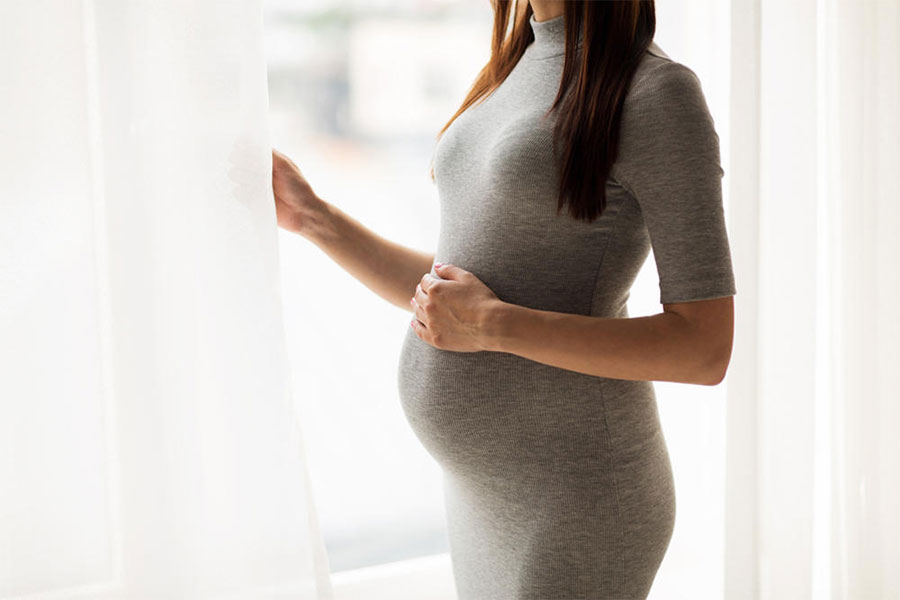 Increased level of oestrogen in pregnant women bodies doesn’t only affect their mood but also influences the condition of hair. Indeed, pregnant women should receive special care. But, why wouldn’t this care concern hair as well? It goes without saying that while carrying a baby within the body a special attention must be paid to hair care and the treatments that an expecting woman wants to expose the strands to. How to take care of hair during pregnancy?
Increased level of oestrogen in pregnant women bodies doesn’t only affect their mood but also influences the condition of hair. Indeed, pregnant women should receive special care. But, why wouldn’t this care concern hair as well? It goes without saying that while carrying a baby within the body a special attention must be paid to hair care and the treatments that an expecting woman wants to expose the strands to. How to take care of hair during pregnancy?
Greasy Hair During Pregnancy
The condition of pregnant women hair depends on the trimester that they are currently in. During the first weeks of pregnancy the level of sebum secreted by skin increases, and this can lead to greasy scalp. For that reason, it’s worth using shampoos and conditioners designed for this very type of hair.
Greasy hair has to be washed in lukewarm water every 2-3 days. During this procedure, scalp shouldn’t be massaged too intensively so as not to encourage excessive sebum production. Moreover, it’s advised to use herbal washes to take the right care of greasy hair and alleviate the problem. The most recommended herbs here are chamomile and nettle. Both plants regulate work of sebaceous glands, prevent irritations and work bacteriostatic.
Brittle and Dehydrated Hair During Pregnancy
Women whose hair had the tendency to brittleness and excessive dehydration, can notice intensification of this problem while being pregnant. The lack of hydration can be balanced by oils, for example jojoba or evening primrose oil combined with substances of highly moisturising properties such as d-panthenol or collagen. The oils can be bought in herbal stores or eco food stores. They can be also looked for on an aromatherapy counter. When it comes to moisturising agents, they can be found in cosmetics designed for dry hair care. Such products contain water-replenishing substances in multiplied doses.
Washing brittle and dehydrated hair should take place no more than twice a week. Right after cleaning the hair it’s suggested to apply conditioners and balms dedicated to excessively dehydrated hair. Also, you can expose the strands to a special treatment. To do this, you have to mix olive oil with egg yolk and then distribute the mixture evenly on hair. After that you have to wrap the hair with a synthetic material such as a special cap or a foil bag. The hair mask has to sit for 2-3 hours and be removed with warm water.
Hair Dyeing and Bleaching During Pregnancy
First and foremost, use of hair dyes while being in the first trimester is strongly forbidden. Ammonia such products contain can get into the blood stream and then reach the placenta. Although this risk is rather low, application of hair dyes during pregnancy can cause allergic reactions even to women who have always undergo hair colouring treatments asymptomatically. In the case of a pressing necessity of hair colouring during pregnancy, it’s better to use delicate shampoos, colouring mousses or henna.
Perm During Pregnancy
Permanent wave is yet another treatment that isn’t recognized as safe to undergo during pregnancy. A-few-hour-long inhalation of the fumes emitted by the perm products can cause dizziness, nausea and fainting. Moreover, it’s highly possible for pregnant woman’s hair to ‘push out’ the perm due to the hormonal changes that are taking place in her body. For that reason, the effect obtained may vary from the looked-for.
Dandruff During Pregnancy
The second trimester of pregnancy is a period when the condition of hair improves. This means that strands become stronger and restore their lost shine. Sadly, a new problem might arise – dandruff. There is no need in waiting idly for the dandruff to vanish on its own because this may increase the risk of follicle inflammation, which can lead to scalp irritation. In the fight against dandruff there are a few ally substances that should be considered helpful: cosmetic kerosene, black turnip extract or nettle washes. Another good idea that facilitates getting rid of dandruff is application of a homemade hair mask made from castor oil, egg yolk and a few dashes of lemon juice. Furthermore, it’s advised to use the widely-accessible anti-dandruff shampoos and conditioners, especially the ones which are based on natural substances.
Hair Thinning During Pregnancy
Quite a problem that many young mothers have to face with is uncontrolled hair thinning. Somewhere around the third month after delivering the baby the high level of oestrogen starts falling down rapidly. As a consequence, hair starts thinning. Luckily, there is no need to worry – this state passes by fairly fast. In the case of the women who don’t breastfeed, this problem alleviates already after 6-9 months. Obviously, women who feed their newborns naturally must wait a little bit longer to notice their hair regrowth. Due to breastfeeding, prolactin is still present in their bodies. This is a hormone which high level can cause excessive hair falling out.

















Leave a Reply